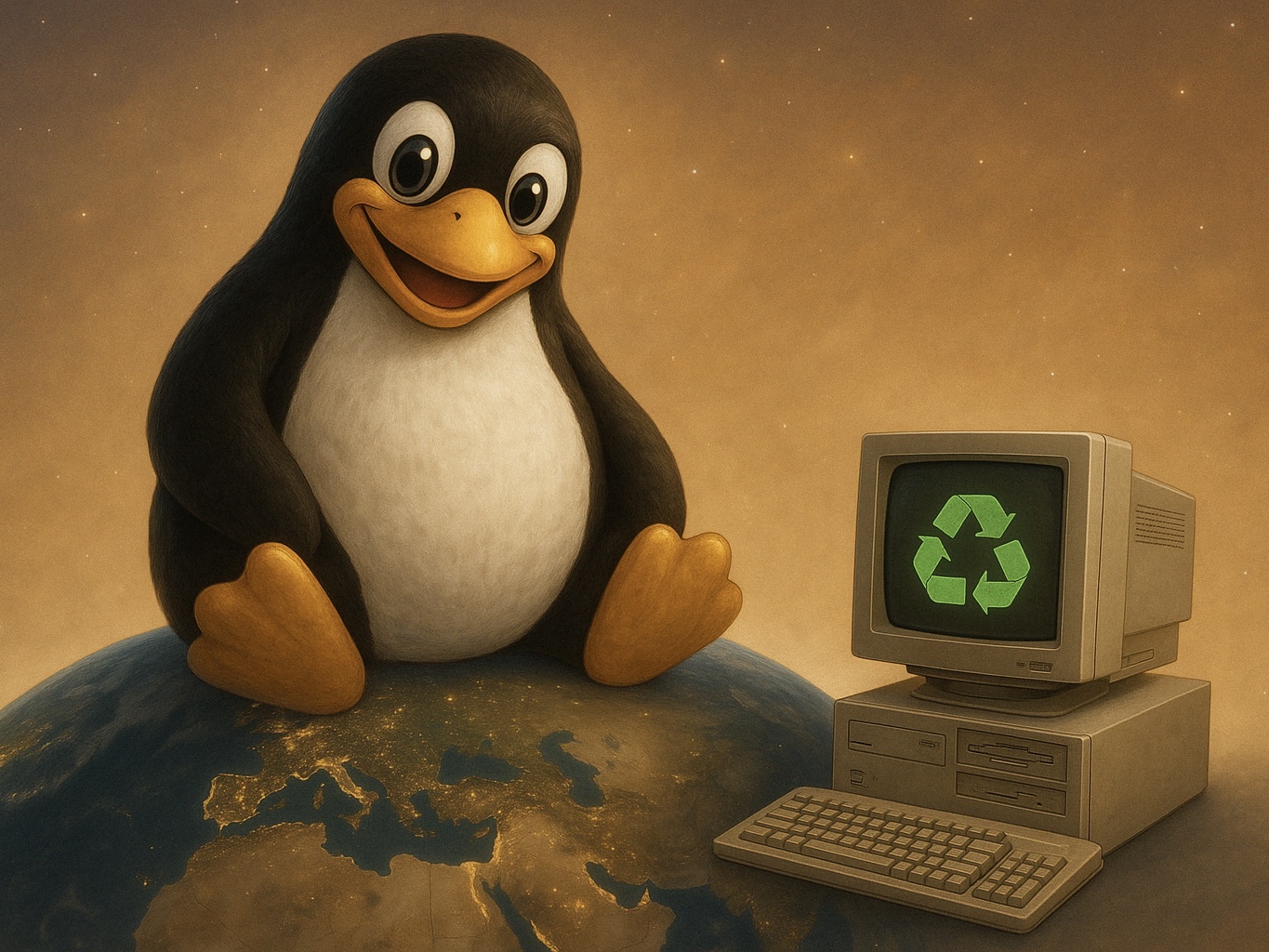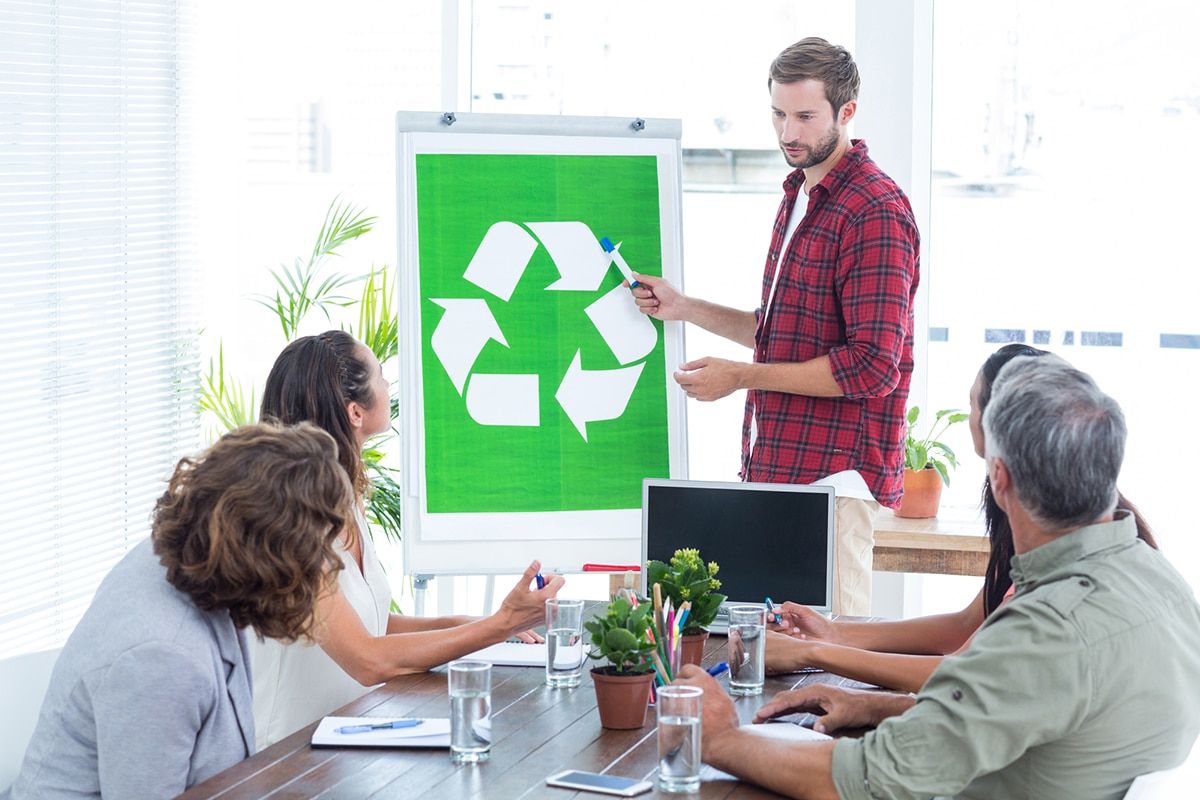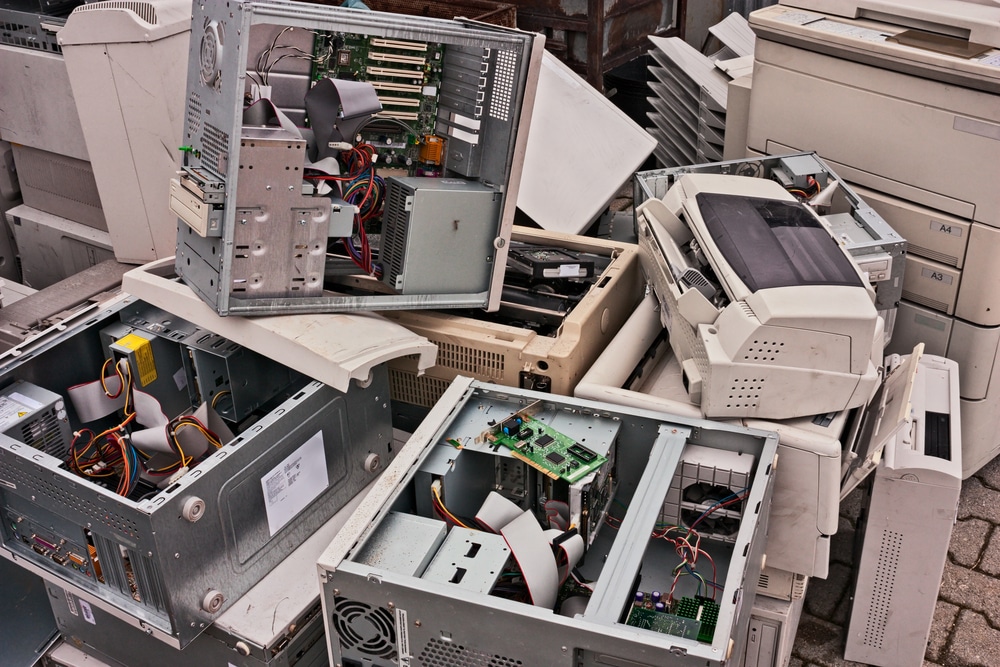
Install Linux on your old PC to save it from the landfill this Earth Day
Earth Day is tomorrow, and it is a time to reflect on how we treat the planet we all share (until Elon Musk colonizes Mars, at least). While some people mark the day by picking up trash or planting a tree, there’s another simple yet powerful way to help the environment that you might not have considered -- install Linux on your aging computer instead of tossing it in the trash!
Old computers don’t have to die. In fact, most of them still have plenty of life left in them -- if you’re willing to ditch bloated operating systems that no longer support them. That’s where Linux comes in. Unlike Windows 11, which demands modern processors and fairly high-end specs just to boot, many Linux distributions run smoothly on older hardware. Whether it’s a decade-old laptop collecting dust or a desktop with a failed Windows installation, Linux can breathe new life into machines that would otherwise end up in landfills.

Experts say the end of Windows 10 support could turn 240 million PCs into e-waste
The upcoming end of Windows 10 support may lead to hundreds of millions of devices becoming obsolete, potentially contributing significantly to electronic waste. The industry predicts that the end of Windows 10 support in 2024 will affect customers' refresh plans, with one in three devices expected to be replaced in the next two years.
Despite the growing capabilities of partners to refurbish and resell PCs, devices not supported by Windows 11 will not be viable for reuse, exacerbating the industry's e-waste problem.

Digital waste management in business [Q&A]
With 200 million tonnes of waste produced each year by the UK, digital waste management is set to revolutionize the sector, collecting and collating waste tracking data in one central location. The government plans to introduce mandatory digital waste tracking across the UK in 2024, which can help businesses analyze and accurately implement the right strategies to achieve their green goals.
Currently, waste tracking data is a mix of digital and paper-based, held mainly by private IT contractors with few centralized systems. As a result, it’s difficult to determine what happens to our waste and whether it’s been recycled, recovered or sent to landfill. The new system should therefore bring a new era of efficiency, accuracy and sustainability.

A third of SMBs dispose of old hardware in landfill
As growing businesses rush to upgrade their hardware, many are simply throwing old computers, routers, and other IT assets into the trash, leading to security and environmental concerns.
A new study from Capterra of 500 IT professionals at US small and midsize businesses (SMBs) reveals that nearly a third (29 percent) indulge in improper IT hardware disposal practices.

End-user experience management delivers on cost-saving and Net Zero targets
CIOs are under constant pressure to cut costs, reduce tech waste, and increase productivity, but never more so than this year with the looming threat of recession. Rather than concerning themselves with the issues a weakened economy may bring, savvy CIOs should consider the opportunity 2023 brings to meet longstanding efficiency and sustainability goals.
By gaining observability to the health of their IT infrastructure -- specifically, the end-user experience -- executives can gain insights, software and hardware performance analysis to find critical cost reductions. An IT infrastructure review could improve efficiency and, in turn, make business more productive, profitable, and sustainable.

How the tech industry can tackle the e-waste crisis head on
The success of the technology industry has been built on its constant innovation, always seeking out and creating products that are 'quicker' or 'more powerful' or 'sleeker'. However, as a consequence, there has been an elephant in the room growing for some time -- one that is yet to be tackled and taken seriously. That elephant is the mountain of electronic waste (e-waste) that continues to pile high every year.
With our tech consumption now comprising of everything from smartphones to tablets, from laptops to smartwatches, we as an industry bear a responsibility to manage the eventual waste these products create. Currently the amount of e-waste we generate rises by 347 million metric tonnes each year, and only 17.4 percent of it is known to be collected and properly recycled. To reverse the considerable environmental damage created by the IT industry, we need to change how we procure IT.
